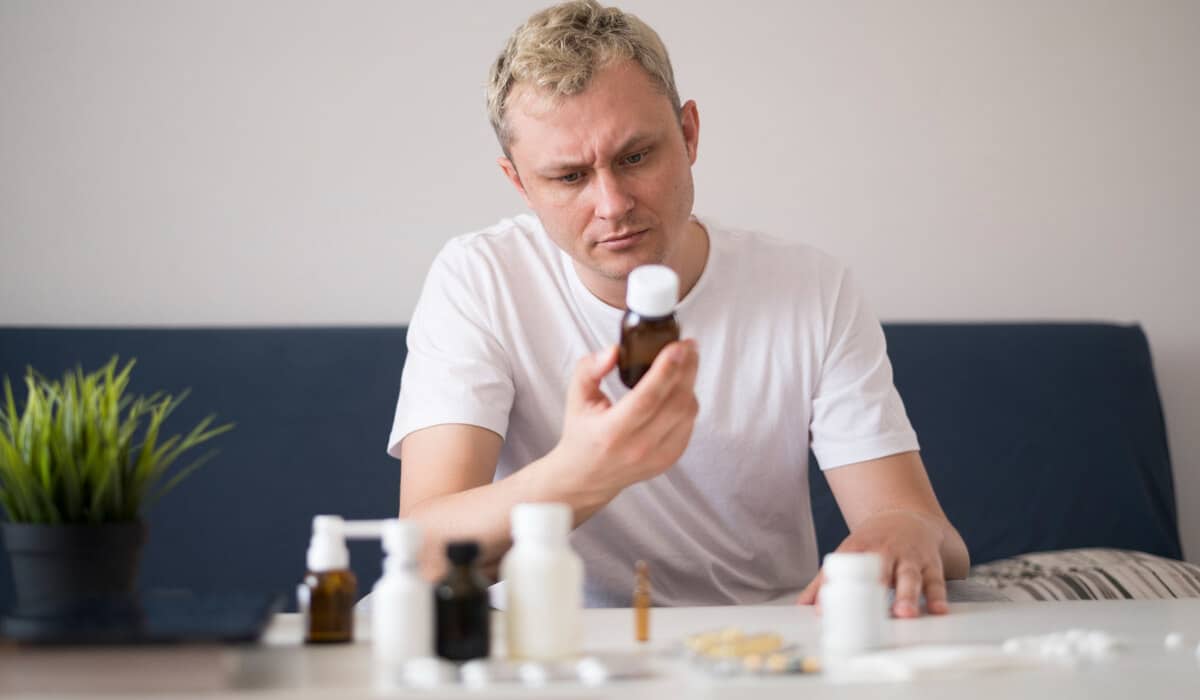Table of Contents
In recent years, the conversation around men’s health has taken a dramatic turn, focusing less on traditional benchmarks of masculinity and more on what’s truly going on beneath the surface—especially when it comes to hormones. At the center of this shift is low testosterone, a condition that once went undiscussed, often dismissed as a natural part of aging. But today, more and more men are not only acknowledging it—they’re taking action. Enter Hormone Replacement Therapy (HRT), a once-niche treatment that’s fast becoming a game-changer in modern men’s wellness.
Understanding Low Testosterone: More Than Just Feeling Tired
Low testosterone, or Low T, isn’t just about fatigue or a dip in libido. It can impact nearly every aspect of a man’s life, from mood and motivation to muscle mass, energy levels, and mental clarity. What makes it so dangerous is how gradually it can creep in, often mistaken for stress, poor sleep, or simply “getting older.” But there’s a biological reason behind this decline. Testosterone levels naturally decrease as men age—usually starting in their 30s—but for some, that drop is more dramatic and begins earlier.
The Mental Impact of Hormonal Imbalance
One of the most overlooked consequences of low testosterone is its psychological toll. Men struggling with hormonal imbalances often report brain fog, irritability, and even depression. Unsurprisingly, when the body isn’t producing enough of this crucial hormone, the mind takes a hit, too. Mental health professionals are now working more closely with hormone specialists to identify when mood disorders might stem from a hormonal root—a breakthrough in both fields.
HRT: A Modern Solution for a Modern Problem
Hormone Replacement Therapy isn’t new, but it’s evolving quickly. What used to be a one-size-fits-all approach has transformed into personalized treatment plans tailored to each man’s needs. Whether administered via injections, gels, or patches, HRT is helping men reclaim their vitality without the stigma that once surrounded it.
The Rise in Popularity: Why More Men Are Embracing HRT
Growing awareness of men’s health, coupled with a reduction in outdated stereotypes, has fueled an uptick in HRT treatments. Men aren’t waiting until they’re in crisis—they’re being proactive. With celebrities and athletes speaking openly about their own experiences with Low T and HRT, the conversation is reaching more ears and helping normalize this important part of health maintenance.
Performance, Confidence, and the Return of Motivation
Beyond the physical perks, men undergoing HRT often report a major shift in self-confidence. The return of drive, both in the gym and in life, can’t be understated. That “spark” that may have felt lost starts returning, sometimes within weeks of treatment. For many, it’s not just about testosterone—it’s about taking back control of their life and well-being.
A Turning Point in Men’s Health Awareness
This wave of interest in testosterone and HRT signals something deeper: a cultural shift. Men are no longer told to “tough it out” or chalk everything up to stress. They’re learning that health is holistic, and hormones are a foundational part of the puzzle. The outdated mindset that only women need to worry about hormones is being firmly retired.
Misconceptions Around HRT: Breaking the Myths
Despite its growing popularity, there are still plenty of misconceptions about HRT. Some believe it’s dangerous or only for extreme cases, but when managed by qualified professionals, HRT can be incredibly safe and effective. The key is ongoing monitoring, regular bloodwork, and adjustments based on real-time data—making it one of the most carefully guided treatments available today.
The Importance of Proper Diagnosis and Monitoring
Before starting HRT, men need to get a comprehensive hormone panel. This helps determine whether testosterone is truly the issue or if there’s something else at play. To build a full picture, an experienced provider will assess testosterone levels and other factors like estrogen, cortisol, and thyroid function. The best HRT clinics offer ongoing support to ensure effective and balanced treatment.
Lifestyle Still Matters: Supporting HRT with Healthy Habits
While HRT can be a powerful tool, it’s not a magic fix. Diet, exercise, sleep, and stress management all play a crucial role in how well testosterone functions in the body. Think of HRT as a foundational reset that must be supported with smart lifestyle choices to create long-lasting change. The most successful cases combine medical therapy with holistic self-care.
Looking Ahead: The Future of Hormonal Health in Men
As research expands, we’ll likely see more advanced, targeted HRT options emerge. With innovations in diagnostic technology and an increasing focus on men’s preventive care, the stigma around hormone health is rapidly fading. More men realize that aging well isn’t just about looking good—it’s about feeling empowered and maintaining full-spectrum wellness.
If you’ve been feeling drained, unfocused, or not like yourself, it’s worth considering whether low testosterone might be the culprit. The good news is you don’t have to accept this as your new normal. Hormone replacement therapy offers a real, effective solution to help you regain your energy, confidence, and drive. Today’s modern man isn’t afraid to take control of his health—and neither should you. If you’re ready to explore your options and get back to feeling your best, visit PD Labs for trusted, personalized hormone health solutions. Your future self will thank you.


